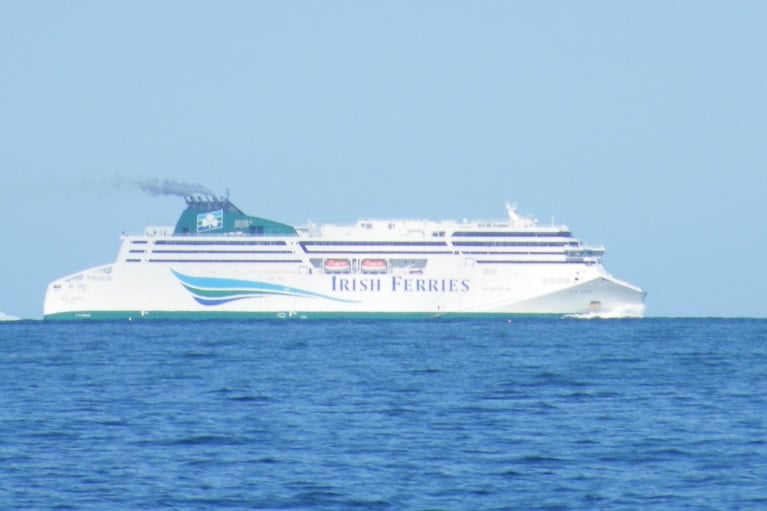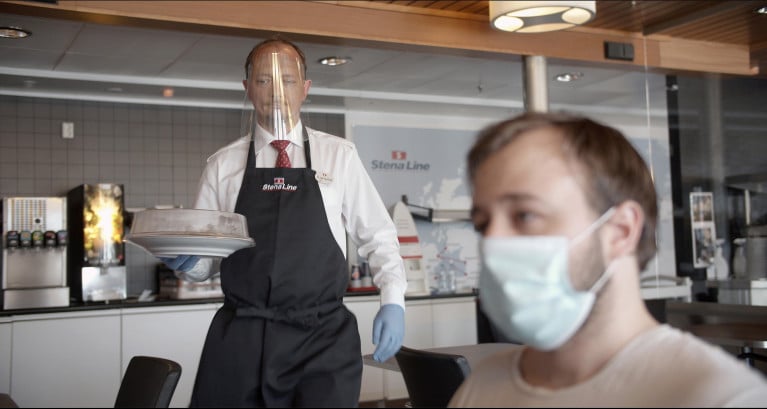Displaying items by tag: Travel: Summer
Operator Irish Ferries Unveils Safer Way to Get Away for Holidaymakers to Travel Comfortably When It's Time
Ferry Travel: The prospect of a 2020 holiday abroad seemed all but lost a few weeks ago, but as thoughts turn to the reopening of our country and European destinations begin to lift restrictions, Irish Ferries is delighted to announce new measures to help holidaymakers get away when it’s time.
These additional safety measures will help to ensure customers are guaranteed the safest and most comfortable way to get to their chosen holiday destination in the UK or France when the time comes to travel again.
Many Irish families will have recent or distant memories of holidays in France, and Irish Ferries is delighted to reconnect Irish holidaymakers with the beautiful country. With amazing culture and history, Normandy is ready to be explored. Or hop in the car to Brittany, which has countless beaches to soak up some well-deserved sun, as well as ample destinations to take trips to from La Pointe Saint Mathieu to the iconic Mont Saint-Michel Bay.
With sailings to the UK, families, couples or friends can re-connect with loved ones after many months apart, or simply enjoy a holiday. Haven Holiday Parks are set to open throughout July, perfect for families in Wales. Easy to get to from Holyhead also is the Llŷn Peninsula which features beaches, bays and plenty of walking opportunities along the Llŷn Coastal Path. Looking further afield to the English countryside, the Peak District is awash with natural beauty with plenty of towns and villages to discover too.
Passengers that travel with Irish Ferries know that the holiday begins as soon as they step on board. And while things have been adapted for now, Ireland’s leading ferry operator says that ferry travel provides an already unique experience that is vastly different to air travel and is highlighting several key advantages of taking to the seas when the time is right.
Unlike when flying, passengers can of course avail of the unique benefit of enjoying clean fresh sea air and unbeatable views on outer decks, with ventilation and air conditioning systems on board also using just 100% fresh air.
Irish Ferries has introduced in-car check in, so that passengers can stay in the comfort and safety of their own car during check in. Where passport checks are in operation, passengers are asked to hold up passports from their car for review, limiting contact with staff.
Onboard with Irish Ferries, passengers can sail in space, with plenty of room inside, with clear marking and signage, easily allowing for social distancing. There is ample seating to accommodate passengers and the option of private cabin accommodation on cruise ferry services to both Britain and France.
Irish Ferries has also increased the frequency of onboard cleaning routines. There will be intensified sanitation and disinfection of all common touchpoints throughout ships. Each cabin is cleaned thoroughly after use, with a special device that eliminates viruses and other air and surface contaminants. This device is used in “Clean Room Technology” throughout the pharmaceutical sector and in some hospitals.
To further enhance safety of both passengers and crew, Irish Ferries has amended its food and beverage services on board, in its cafes, restaurants and in-room dining. And there are new protocols in place in public areas with crew and staff that are in direct contact with passengers wearing masks and gloves, and plexiglass at all till points. Hand sanitiser stations are widely available and cinemas, bars, shopping, Club Class lounges and kids soft play areas have been closed for now. However, to keep the family entertained, Video on Demand is available in all cabins on the France service.
Irish Ferries are advising passengers to bring face masks or face covering when travelling and to wear a face covering when moving around public spaces. These are now mandatory by French authorities when travelling to France.
Regardless of where you might like to travel to this summer, be assured, that Irish Ferries offers a safer way to get away, when the time is right and looks forward to welcoming passengers back onboard again soon.
Ferry Operator Stena Announce New Measures Put in Place to Ensure Safe Travel this Summer
A set of safety measures announced by Stena Line, given the potential easing of lockdown restrictions and the re-emergence of non-essential travel, is aimed at ensuring ferry travel is the safest form of public transport.
Social distancing, fog machines, fresh sea air inside the ships and the recommended wearing of face coverings, are all seen as key to reassuring customers about the future of ferry travel (see safety video) as countries reopen their borders in the coming weeks.
Stena Line’s ferries have played a vital role during the pandemic keeping supplies of food, medicines and equipment moving across Europe. As people look forward to being able to travel this summer, Stena Line has been receiving an increase in passenger bookings. In advance of the return of sea corridors reopening to tourist travel the company has been finalising extensive new safety measures to combat the spread of COVID-19 and ensure a safe and seamless journey:
- Easier social distancing - ferry travel is the only form of public transport where passengers can social distancing easily. Stena Line has undertaken risk assessments, which have capped the numbers of passengers on each crossing to guarantee adequate space.
- Fresh sea air is now being circulated into the air filtration systems on all ferries.
- New fog machines are being used to sanitise communal areas and cabins on the ferries and alongside the continuous cleaning routines being undertaken throughout the ships.
- From today, Monday 15th June, face coverings are recommended for all passengers and crew on Stena Line vessels, and in terminals, on all routes on the Irish Sea and the North Sea, where social distancing is difficult to achieve, such as in stairwells, lifts and in corridors.
“Ferry travel is the only mode of transport where you can social distance, so it is no surprise that we are now seeing an increase in bookings due to the expected reduction in lockdown restrictions. In advance of the return of international travel we now feel the time is right to tell people about our new anti-COVID-19 measures and reassure them that ferries provide the safest mode of transport for travel passengers and freight drivers. The safety of our passengers and crew is always a top priority for Stena Line.” Says Stena Line’s CEO Niclas Mårtensson.
As part of Stena Line’s safety plan to prevent the spread of the Covid-19, an extensive risk assessment identified three key stages of the customer journey to focus on:
A. During check-in at the Terminal.
B. While onboard the vessels.
C. During embarkation and disembarkation
“By providing the ability to social distance the whole journey, our big, bright and spacious ferries have plenty of fresh sea air, both inside and out, and offer the safest way to travel for people who want to take a break after the long lockdown” says Niclas Mårtensson, CEO of Stena Line.





























































